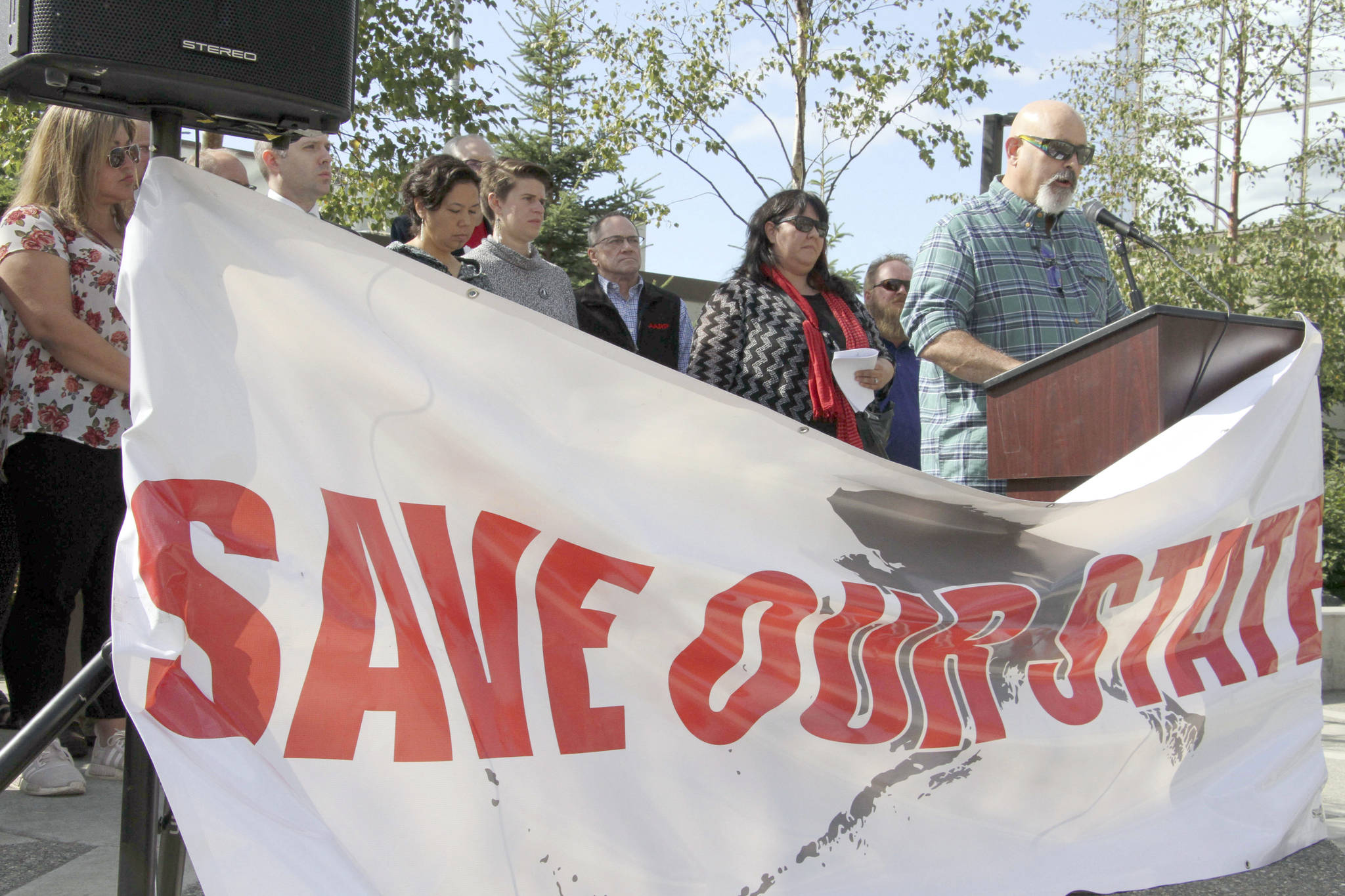ANCHORAGE — Alaska social service providers gathered Wednesday to urge Gov. Mike Dunleavy to forego vetoes in the latest budget bill but acknowledged that they have no guarantee that the outcome will be different this time around.
Dunleavy in June vetoed more than $400 million from a budget passed by legislators. More than one-third of the money vetoed was from the budget of the University of Alaska. Programs aiding the homeless, the elderly and the poor also took hits.
State lawmakers could not muster a three-fourths majority to override. However at special session last week, they approved a budget bill restoring much of the money eliminated, which Dunleavy could again veto.
At a press conference outside state offices in Anchorage, representatives of more than two dozen groups urged Dunleavy to retain the money both as a driver of the economy and as a humanitarian response to Alaskans who lack basic services such as food, health care and housing.
“Yes, Alaska is faced with a fiscal challenge,” said Trevor Storrs of Alaska Children’s Trust. “But the real issue we are faced with today is deciding what kind of state we want to live in.”
One of the highest risk factors for children, Storrs said, is homelessness. Eliminating a majority of services for combatting homelessness, early childhood education and behavioural health services puts children in harm’s way and endangers Alaska’s future work force, he said. He urged Dunleavy to be a champion for children.
“Preserve the Alaska we all live in,” he said.
Ken Helander, advocacy director for AARP, called for Dunleavy to maintain the senior benefits program, Pioneers Homes and Alaska Legal Services that allow elders to live in dignity.
“These parts of our community that have been so carefully crafted are now threatened by decisions that do not reflect respect for our elders or wisdom for the community,” Helander said.
Michael Fredericks, chairwoman of Catholic Social Services board, said the agency served 3,339 people — including 172 veterans and 539 victims of domestic violence — with its homeless services network during the three coldest months of the winter.
The organization, which serves people of all faiths, lost $1.2 million in the initial vetoes.
“We project a 48% increase in homelessness immediately and directly affecting the health and safety of the individuals I mentioned,” she said, and increased cost to municipalities for dealing with them.
The agency oversees high-profile, short-term crisis shelters such as the Brother Francis shelter and Clare House, a 24-hour emergency shelter open to women with children and expectant mothers over the age of 18.
The biggest financial hit, however, has been to its case management services that are designed to permanently “ladder out” people from homelessness. The agency has begun to lay off case workers for the program, Fredericks said.
Mark Lackey of Alaska Head Start Association, which supports health and education services for preschool children of low-income families, said the organization estimates 500 fewer children will be enrolled statewide if vetoes are sustained.
Dunleavy has said that he sees much of the budget settled but that he would consider putting some money back in, according to his spokesman, Matt Shuckerow.
Dunleavy told reporters last week that cuts and efficiencies must be part of a sustainable budget plan. He said he expected there would be vetoes in the latest budget but the extent had not been determined.
“But, again, the idea behind this is not, quote, to harm Alaska. The idea behind this is to get a sustainable budget” and resolve the state’s budget deficit, Dunleavy said.

